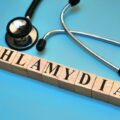Erectile Dysfunction is a common condition affecting millions of men worldwide. It refers to the inability to achieve or maintain an erection sufficient for sexual intercourse. In this comprehensive guide, we delve into the causes, treatments, and lifestyle impact of Errectile dysfunction.
Erectile Dysfunction, commonly known as impotence, is a condition that can affect men of all ages. It can have a significant impact on a person’s self-esteem, relationships, and overall quality of life.
Causes of Erectile Dysfunction
Physical Factors
ED can be caused by various physical factors such as cardiovascular disease, diabetes, obesity, and hormonal imbalances.
Lifestyle Factors
Unhealthy habits such as smoking, excessive alcohol consumption, and lack of exercise can contribute to erectile dysfunction.
Past Injuries
Old injuries to the testes can be a potential cause of impotence, also known as erectile dysfunction. Injuries to the testes, such as trauma or surgical procedures, can damage the delicate structures involved in the production and regulation of hormones and sperm production. This damage can affect blood flow, nerve function, and hormone levels, all of which are crucial for healthy erectile function. Therefore, old injuries to the testes can contribute to erectile dysfunction in some cases.
Psychological Factors
Psychological factors like stress, anxiety, depression, and relationship issues can also contribute to ED.
Sexual Factor
According to some sexologists, erectile dysfunction is temporary or permanent, loss of sexual power generally started by severe masturbation or excessive venery or genital manipulation form a young age.
Common Symptoms of ED
Symptoms of ED include difficulty achieving or maintaining an erection, reduced sexual desire, and vperformance anxiety.
- Difficulty achieving an erection
- Trouble maintaining an erection during sexual activity
- Reduced sexual desire or libido
- Premature ejaculation or delayed ejaculation
- Psychological distress or anxiety related to sexual performance
- Unsatisfactory sexual experiences
Types of Impotence
There are several types of impotence, also known as erectile dysfunction (ED), each with different underlying causes and characteristics:
Organic Impotence
This type of impotence is caused by physical factors that affect the ability to achieve or maintain an erection. Common causes include cardiovascular disease, diabetes, hormonal imbalances, neurological disorders, and anatomical issues affecting the penis or surrounding tissues.
Nervous impotence
Nervous impotence is primarily caused by psychological factors rather than physical issues. Anxiety, depression, stress, performance anxiety, relationship problems, and unresolved emotional issues can contribute to psychogenic impotence. It’s important to address these psychological factors through counseling or therapy to improve erectile function.
Mixed Impotence
Mixed impotence refers to a combination of physical and psychological factors contributing to erectile dysfunction. This type of impotence is common, as physical health issues can often lead to psychological stress and vice versa. Effective treatment may involve addressing both the physical and psychological aspects of the condition.
Medication-Induced Impotence
Certain medications, such as antidepressants, antihypertensives, diuretics, and medications used to treat prostate conditions, can cause or contribute to erectile dysfunction as a side effect. If medication-induced impotence is suspected, consulting with a healthcare provider to explore alternative medications or treatment options is important.
Lifestyle-Related Impotence
Unhealthy lifestyle habits such as smoking, excessive alcohol consumption, drug abuse, sedentary behavior, poor diet, and lack of exercise can contribute to erectile dysfunction. Making positive lifestyle changes, such as quitting smoking, moderating alcohol intake, and adopting a healthy diet and exercise routine, can improve erectile function.
Diagnosis and Medical Evaluation
Diagnosing ED involves a thorough medical history, physical examination, and sometimes laboratory tests to identify underlying health conditions.
Treatment Options for Erectile Dysfunction
Erectile dysfunction (ED), can often be effectively treated or managed. The approach to fixing impotence depends on the underlying cause. Here are some common strategies:
Lifestyle Changes
Making lifestyle changes such as regular exercise, healthy diet, quitting smoking, and managing stress can improve ED symptoms.
Medications
Medications like Viagra, Cialis, and Levitra are commonly prescribed to treat ED by improving blood flow to the penis.
Therapies and Procedures
Other treatment options include penile implants, vacuum devices, and injections into the penis.
Medical Procedures
In some cases, surgical interventions such as penile implants or vascular surgery may be recommended.
Vacuum Devices and Penile Implants
For some individuals who do not respond to medications or other treatments, vacuum erection devices or surgical options like penile implants may be considered. These devices and procedures can help achieve and maintain an erection suitable for sexual activity.
It’s important to note that the effectiveness of treatment varies depending on individual factors and the specific cause of ED. Consulting with a healthcare provider is crucial for proper diagnosis and personalized treatment recommendations.
Natural Remedies and Lifestyle Tips
Natural remedies like herbs, supplements, and acupuncture may offer some relief from ED symptoms. Lifestyle tips such as adequate sleep, moderation in alcohol consumption, and communication with partners are also beneficial.
Healthy Diet
A balanced and nutritious diet plays a crucial role in maintaining overall health, including sexual function. Include foods rich in antioxidants, such as fruits, vegetables, whole grains, and lean proteins. Avoid excessive consumption of processed foods, sugar, and saturated fats, as they can contribute to cardiovascular issues linked to ED.
Regular Exercise
Engaging in regular physical activity can improve blood flow, boost cardiovascular health, and enhance sexual function. Aim for at least 30 minutes of moderate exercise most days of the week. Activities like brisk walking, cycling, swimming, and yoga can be beneficial.
Manage Stress
Chronic stress can contribute to erectile dysfunction. Practice stress-reducing techniques such as meditation, deep breathing exercises, yoga, and mindfulness. Engage in activities you enjoy and prioritize relaxation to improve overall well-being.
Quit Alcohol and Tobacco
Excessive alcohol consumption and smoking can impair sexual function. Quit alcohol and consider quitting smoking to improve erectile function and overall health.
Maintain a Healthy Weight
Being overweight or obese can contribute to ED by affecting hormone levels and cardiovascular health. Aim for a healthy weight through a combination of balanced diet and regular exercise.
Get Quality Sleep
Adequate sleep is essential for overall health and well-being, including sexual function. Aim for 7-9 hours of quality sleep each night. Establish a bedtime routine, create a comfortable sleep environment, and avoid stimulants like caffeine before bedtime.
Herbal Supplements
Certain herbal supplements, such as ginseng, L-arginine, and horny goat weed, have been studied for their potential benefits in improving erectile function. However, consult with a healthcare provider before taking any supplements to ensure safety and effectiveness.
Communication and Support
Open communication with your partner about ED and seeking support from a healthcare provider or therapist can reduce stress and improve intimacy. Couples counseling or sex therapy can be beneficial in addressing relationship issues related to ED.
Prevention and Risk Factors
Preventing ED involves maintaining a healthy lifestyle, managing chronic conditions, and seeking early treatment for any underlying health issues.
Maintain a Healthy Lifestyle

- Balanced Diet: Consume a diet rich in fruits, vegetables, whole grains, lean proteins, and healthy fats. Limit intake of sugar, processed foods, and saturated fats, as they can contribute to cardiovascular issues linked to ED.
- Regular Exercise: Engage in regular physical activity to improve blood flow, boost cardiovascular health, and enhance sexual function. Aim for at least 30 minutes of moderate exercise most days of the week.
- Manage Stress: Practice stress-reducing techniques such as meditation, deep breathing exercises, yoga, and mindfulness. Prioritize relaxation and seek support if needed to manage stress effectively.
- Limit Alcohol and Quit Smoking: Excessive alcohol consumption and smoking can impair blood flow and damage blood vessels, leading to ED. Limit alcohol intake to moderate levels and consider quitting smoking to reduce the risk of ED.
Maintain a Healthy Weight
Being overweight or obese can contribute to ED by affecting hormone levels and cardiovascular health. Aim to maintain a healthy weight through a combination of balanced diet and regular exercise.
Manage Underlying Health Conditions
Certain health conditions such as diabetes, hypertension, and cardiovascular diseases can increase the risk of erectile dysfunction. Manage these conditions effectively through medication, lifestyle modifications, and regular medical check-ups.
Practice Safe Sex
Sexually transmitted infections (STIs) can impact sexual health and contribute to erectile dysfunction. Practice safe sex by using condoms and being aware of your partner’s sexual history to reduce the risk of STIs.
Communicate with Your Partner
Open communication with your partner about sexual health, concerns, and preferences is essential. Establishing a supportive and understanding relationship can reduce stress and improve intimacy, contributing to overall sexual well-being.
Regular Check-ups
Schedule regular check-ups with your healthcare provider to monitor overall health, discuss any concerns related to sexual function, and receive appropriate guidance and treatment if needed.
Impact on Relationships and Mental Health

ED can impact relationships and mental health, leading to feelings of frustration, embarrassment, and low self-esteem. Open communication with partners and seeking support from healthcare professionals can help manage these challenges.
Frequently Asked Questions About Erectile Dysfunction
Dealing with erectile dysfunction involves several steps:
Consult with a healthcare professional for an accurate diagnosis and personalized treatment plan.
Make lifestyle changes such as regular exercise, a healthy diet, managing stress, and avoiding smoking and excessive alcohol consumption.
Explore treatment options like medications, therapies, and devices as recommended by your doctor.
Communicate openly with your partner about your condition and seek support from healthcare professionals or support groups if needed.
Erectile dysfunction can often be managed and improved with appropriate medical treatment, lifestyle changes, and addressing underlying health conditions. However, complete “healing” may vary depending on individual factors, and ongoing management may be necessary.
Yes, adopting a healthy lifestyle including regular exercise, a balanced diet, and stress management can help improve ED symptoms.
ED can impact mental health by causing feelings of frustration, low self-esteem, and relationship strain. Seeking support and therapy can help manage these effects.
Yes, an impotent man can still release sperm. Erectile dysfunction (ED) or impotence refers to the inability to achieve or maintain an erection sufficient for sexual intercourse. However, it does not necessarily affect the production or release of sperm. Sperm production occurs in the testes and is typically unaffected by ED. Therefore, even if a man is impotent, he can still ejaculate and release sperm during sexual stimulation or ejaculation.





